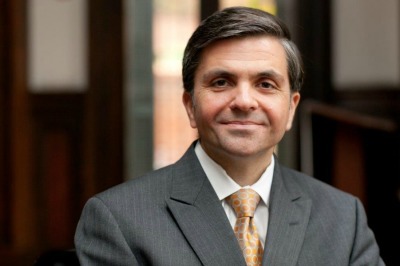Can Religious Activism Shift on Immigration?

This USA Today piece wonders if the religious coalition behind immigration reform, i.e. mass legalization, can survive President Obama's executive amnesty. It quotes Southern Baptist official Russell Moore warning it could indeed fracture the coalition. Moore is just about the only prominent religious leader within that coalition who's publicly criticized the executive amnesty. Officials from nearly all other major participants, such as the Catholic bishops, old-line Protestantism, and Evangelical groups like World Vision have been supportive. The National Association of Evangelicals has so far been carefully quiet.
A Catholic bishop quoted in the story complaining of "neo-nativists" and the "anti-immigrant faction" illustrates why this religious coalition has not been more politically effective. It's dismissive if not contemptuous of skeptics lacking enthusiasm for their prioritization of mass legalization over greater security, deriding them as virtual bigots. In fact, these skeptics include large numbers within their own religious constituencies.
Evangelicals, according to polls, are the religious demographic most skeptical of mass legalization. The Evangelical Immigration Table (EIT), a major subset of the religious coalition, expended millions of dollars trying to mobilize Evangelical opinion behind the U.S. Senate legislation. It was thought that U.S. House of Representatives Republicans would succumb to Evangelical pressure. But in the end, little pressure was felt, nary a single House Republican shifted, and the legislation died, hence Obama's executive amnesty.
Ostensibly the EIT favored enhanced security and enforcement, but it was never a major emphasis, and promises of future security measures in the Senate bill, only after mass legalization, were not believed by critics. Much of the soaring religious rhetoric behind immigration legislation romanticized illegal immigrants as pilgrims and biblical sojourners on sacred missions. How could any enhanced border protection or visa enforcement be morally justified against God's holy messengers?
Actually, many in the immigration religious coalition don't believe in borders closed against anyone except possibly the criminally dangerous. And their unhesitating support for executive amnesty seems to prioritize open borders over rule of law, although the latter arguably has more grounding in Christian teaching than the former.
The religious immigration coalition apparently deluded itself by believing its own claims of wide popular support for mass legalization. It relied on simplistic polls positing legalization against unlikely mass deportations. But those few polls that offered legalization versus increased security always showed strong majorities for security first.
Maybe in the wake of the failure of legislation for mass legalization, followed by executive amnesty, more sensible parts of the religious immigration coalition will consider a modified approach. How about prioritizing border and visa security, advocating a legalization process only after some level of security is achieved, and a broad consensus then becomes possible? How about making theological arguments for security, for walls that protect, for rule of law, and for sustainable immigration based on enlightened national interest?
And how about a new ministry focus that helps potential illegal immigrants consider other constructive options besides quitting their homelands and violating U.S. law?
A new sensible religious coalition by definition will not include old-line Protestants, Jim Wallis or other far left ideologues who don't accept the premise of security or national sovereignty. This new coalition will have to set aside emotive appeals in favor of careful Christian reflection and a discerning respect for both public opinion, especially within their own religious consciences, and the limits of political mobilizing and legislation.
In general, Christians should prefer change that is gradual, organic and modest in aspiration over sweeping, "comprehensive" purported solutions that are more divisive, cannot fulfill expectations and usually generate more problems.
Can at least a segment of religious activism on immigration shift from crusading, polemical absolutism to a more gradual approach that seeks broad consensus? Let's hope some at least try.





















